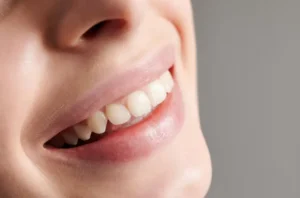
We all want healthy teeth and gums, but not everything we hear about oral care is actually true. Some well-meaning advice can end up causing damage, not protection. Let’s bust a few popular myths that sound helpful — but aren’t.
Myth 1: Brushing Harder Means Cleaner Teeth
It might seem like the more pressure you use, the more plaque you’ll remove — but aggressive brushing actually wears down enamel and irritates your gums.
The truth:
- Use a soft-bristled toothbrush.
- Gentle, circular motions are most effective.
- Let the toothpaste and technique do the work — not force.
Myth 2: Sugar-Free Means Tooth-Friendly
Just because something is labeled “sugar-free” doesn’t mean it’s safe for your teeth. Many sugar-free gums and candies contain acidic ingredients or artificial sweeteners that lower pH in your mouth and still contribute to enamel erosion.
What to watch for:
- Citric acid in flavored waters or lozenges
- Constant snacking or sipping on diet drinks
Myth 3: You Don’t Need to Floss If You Brush Well
Brushing removes surface plaque, but it can’t reach between teeth or under the gumline.
Skipping flossing can lead to:
- Interdental cavities
- Gum inflammation or bleeding
- Long-term gum disease
Daily flossing is still one of the best ways to protect your smile — even if you use a water flosser or dental picks.
Myth 4: White Teeth Are Healthy Teeth
While bright teeth can look great, color isn’t the only sign of dental health. Teeth can be white but still have:
- Hidden cavities
- Eroded enamel
- Gum problems below the surface
Don’t rely on appearance alone — regular dental checkups are key.
Myth 5: Natural Remedies Are Always Safe
Some people turn to DIY options like lemon juice, baking soda, or charcoal to whiten teeth. These may seem harmless, but they can:
- Abrade enamel
- Increase tooth sensitivity
- Harm your gums
Before trying any natural method, check with a dentist — even natural substances can do serious damage over time.
Final Thought
When it comes to dental care, simple consistency beats aggressive shortcuts. Brush gently, floss daily, limit acidic and sugary snacks, and see your dentist regularly. And always question “dental tips” that sound too good to be true — because sometimes, they are.
Picture Credit: Freepik

